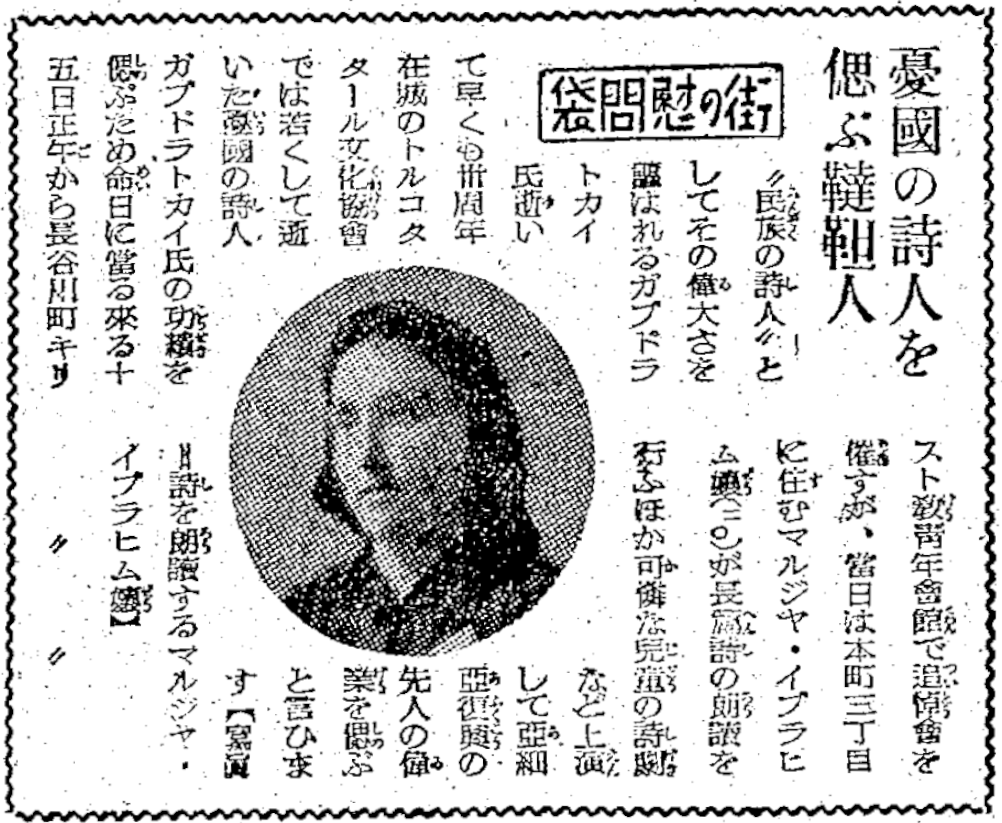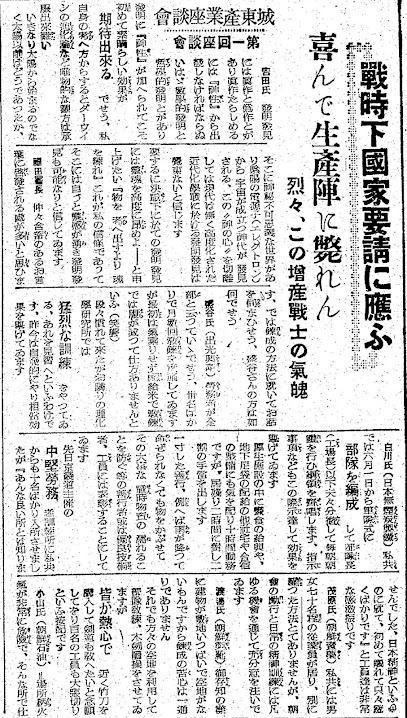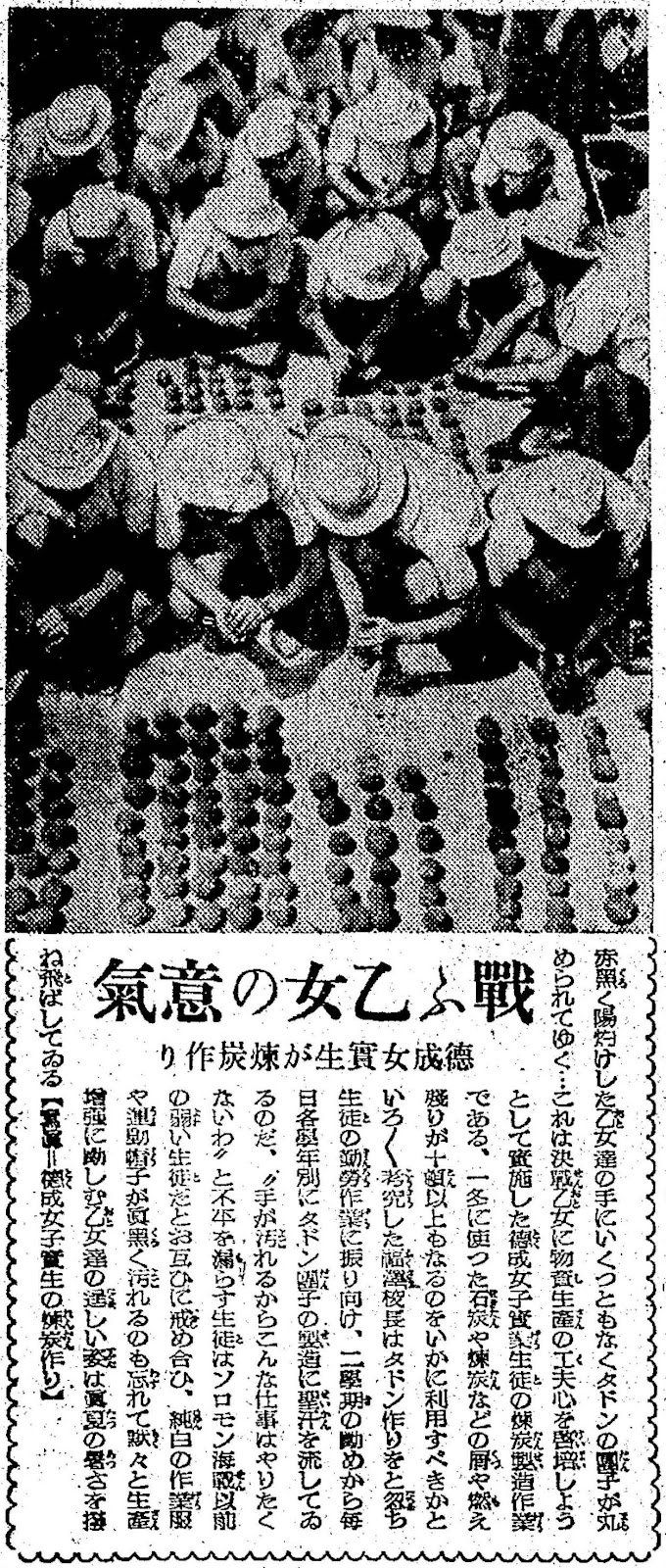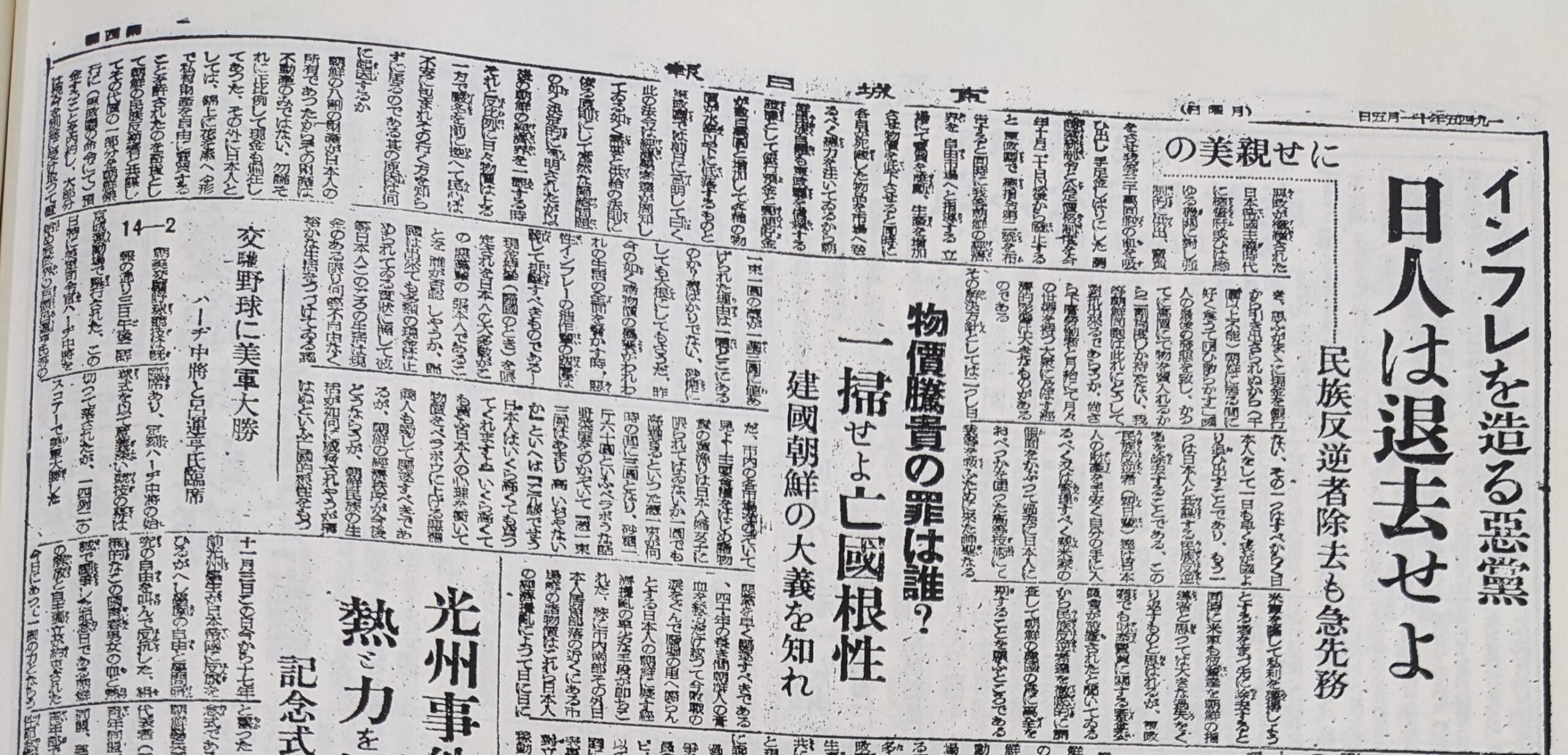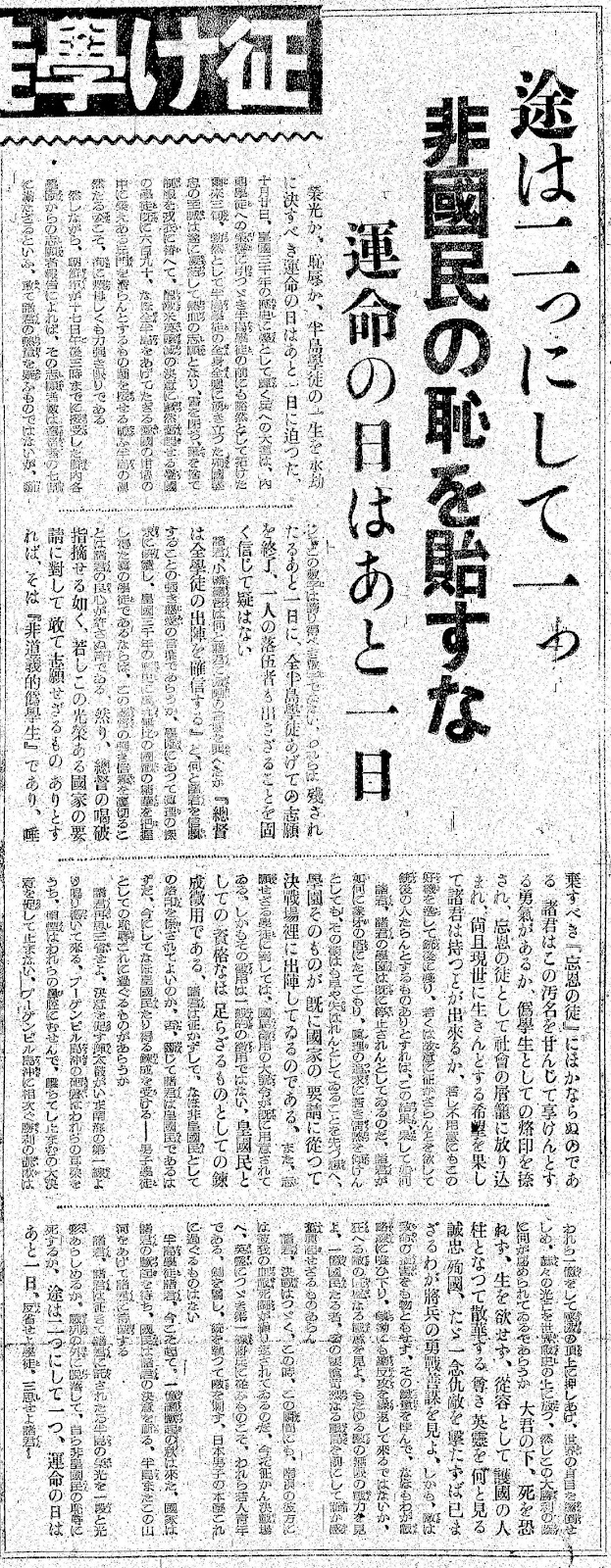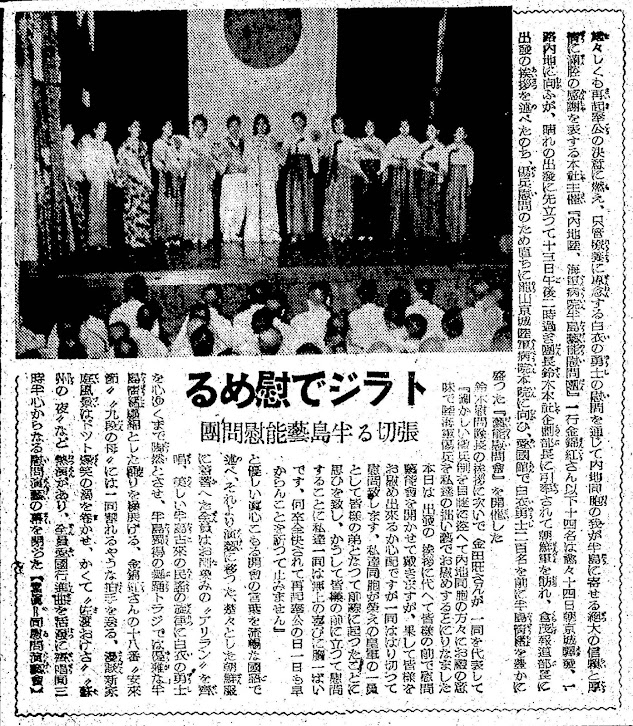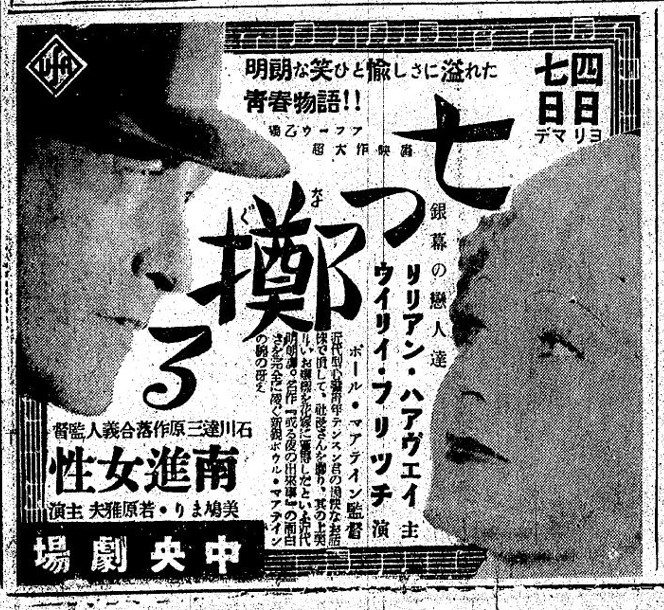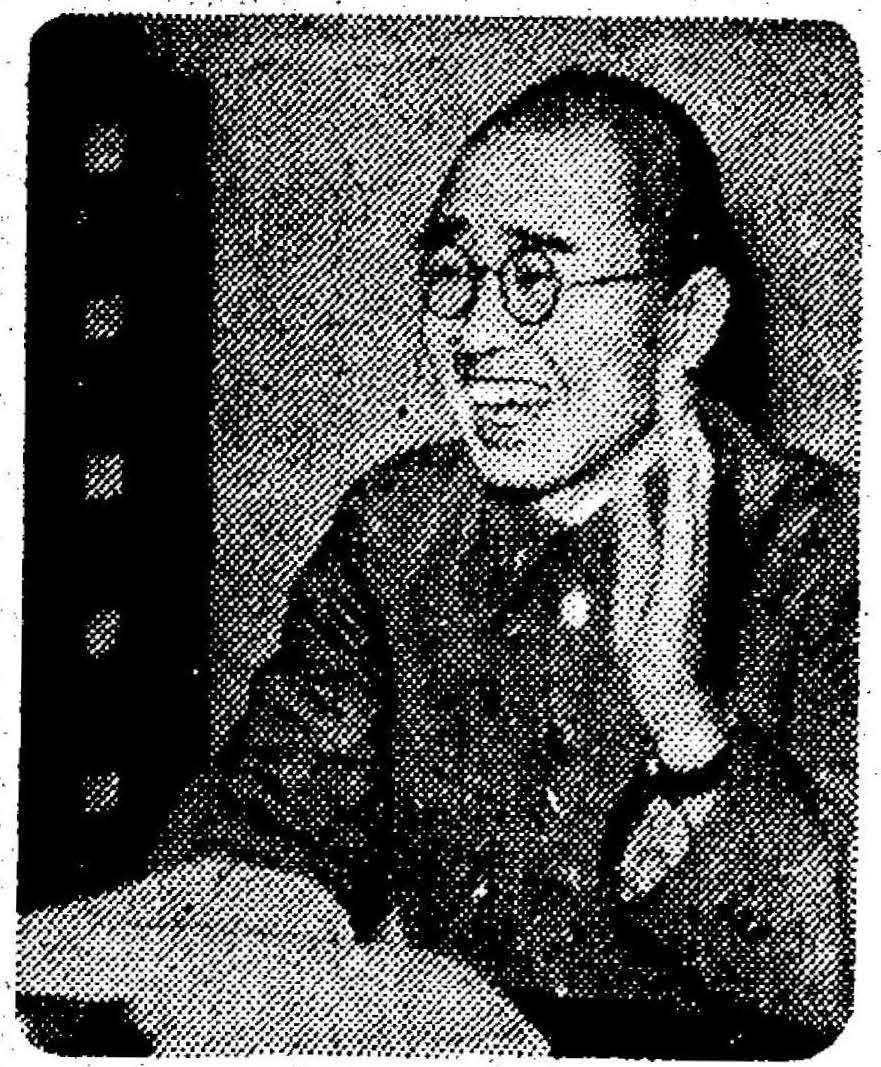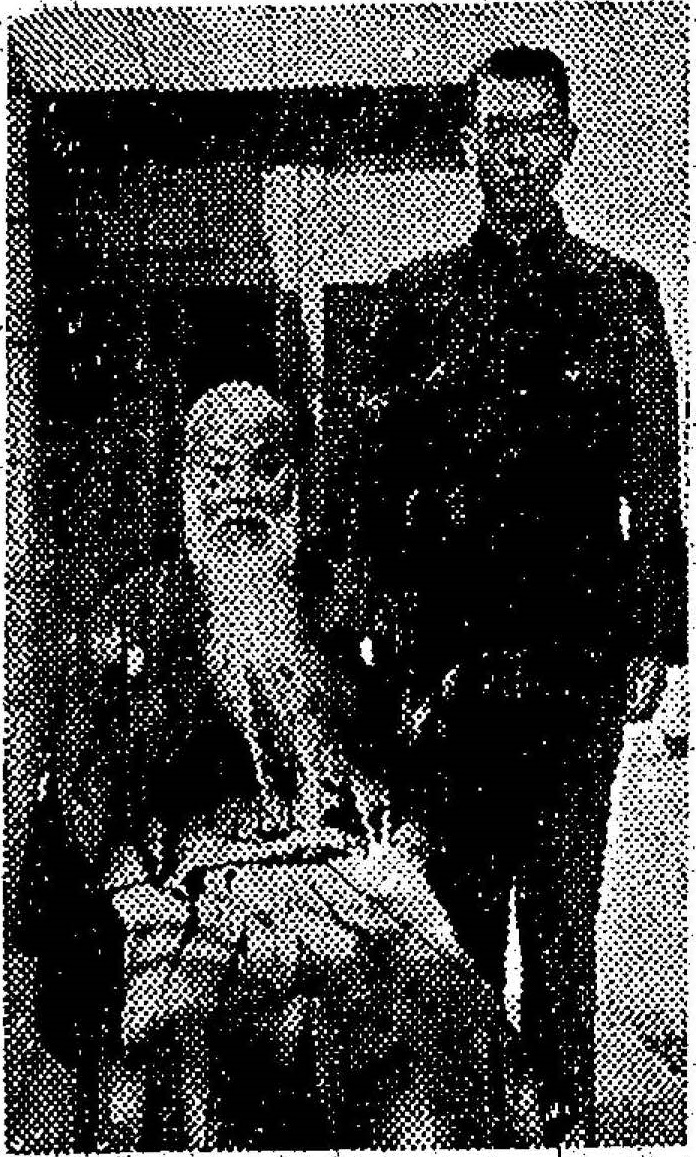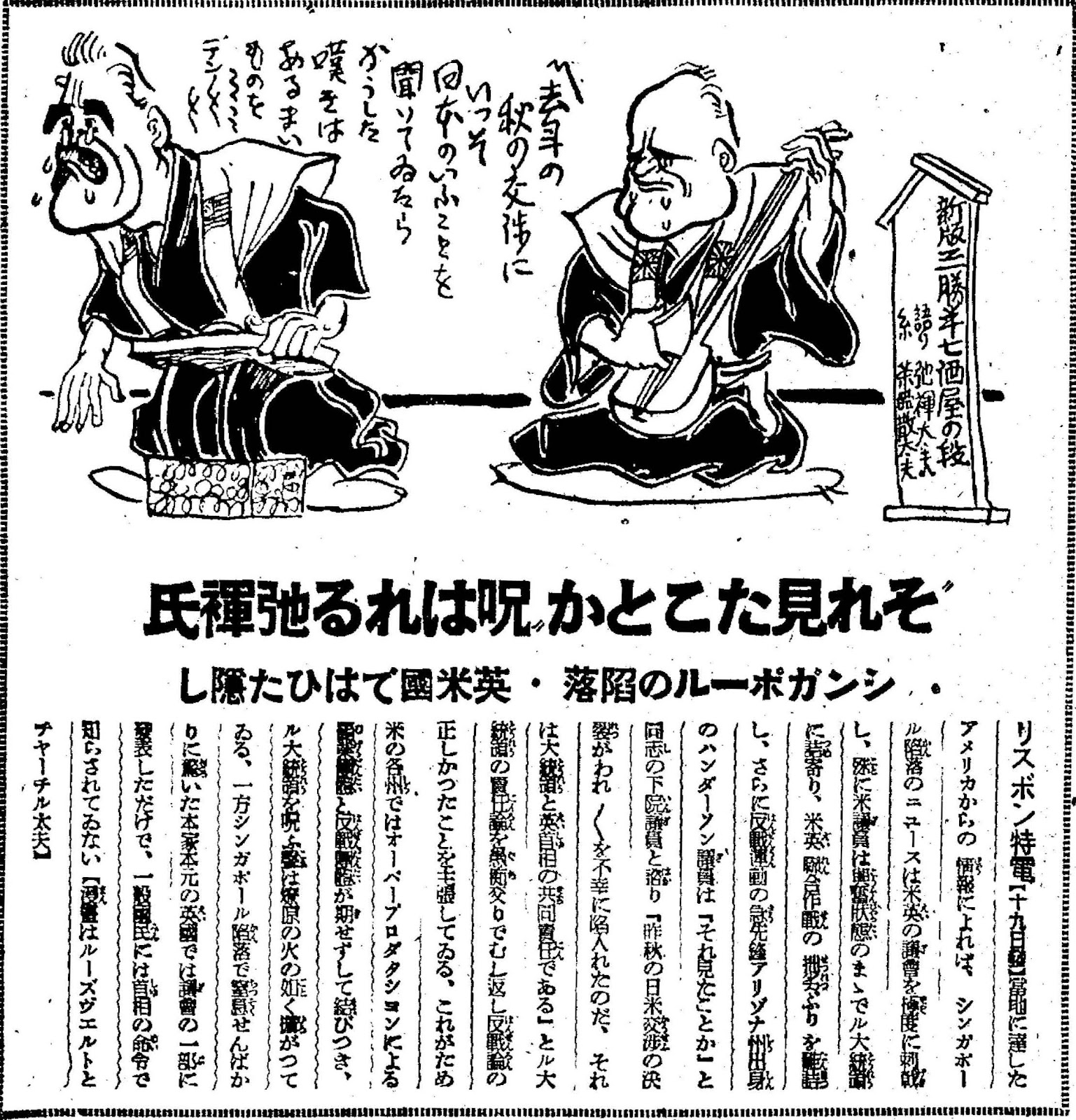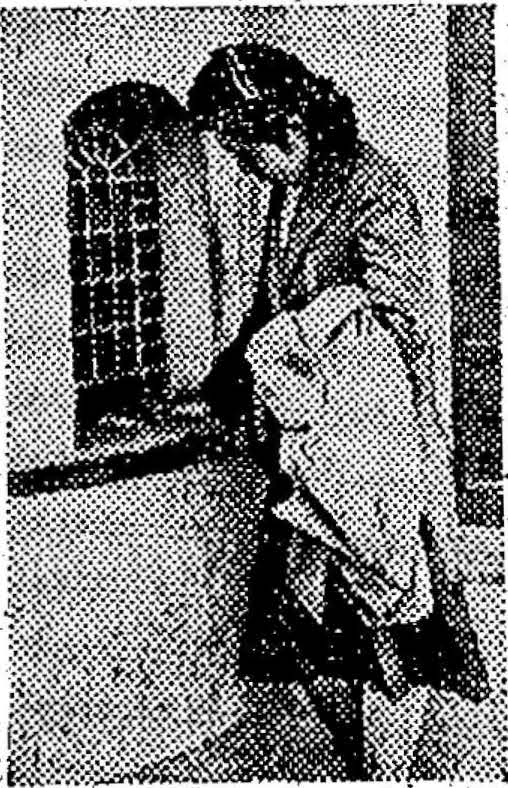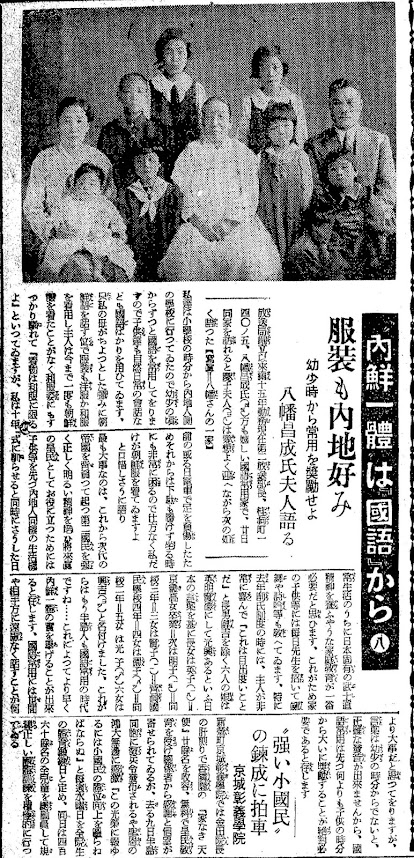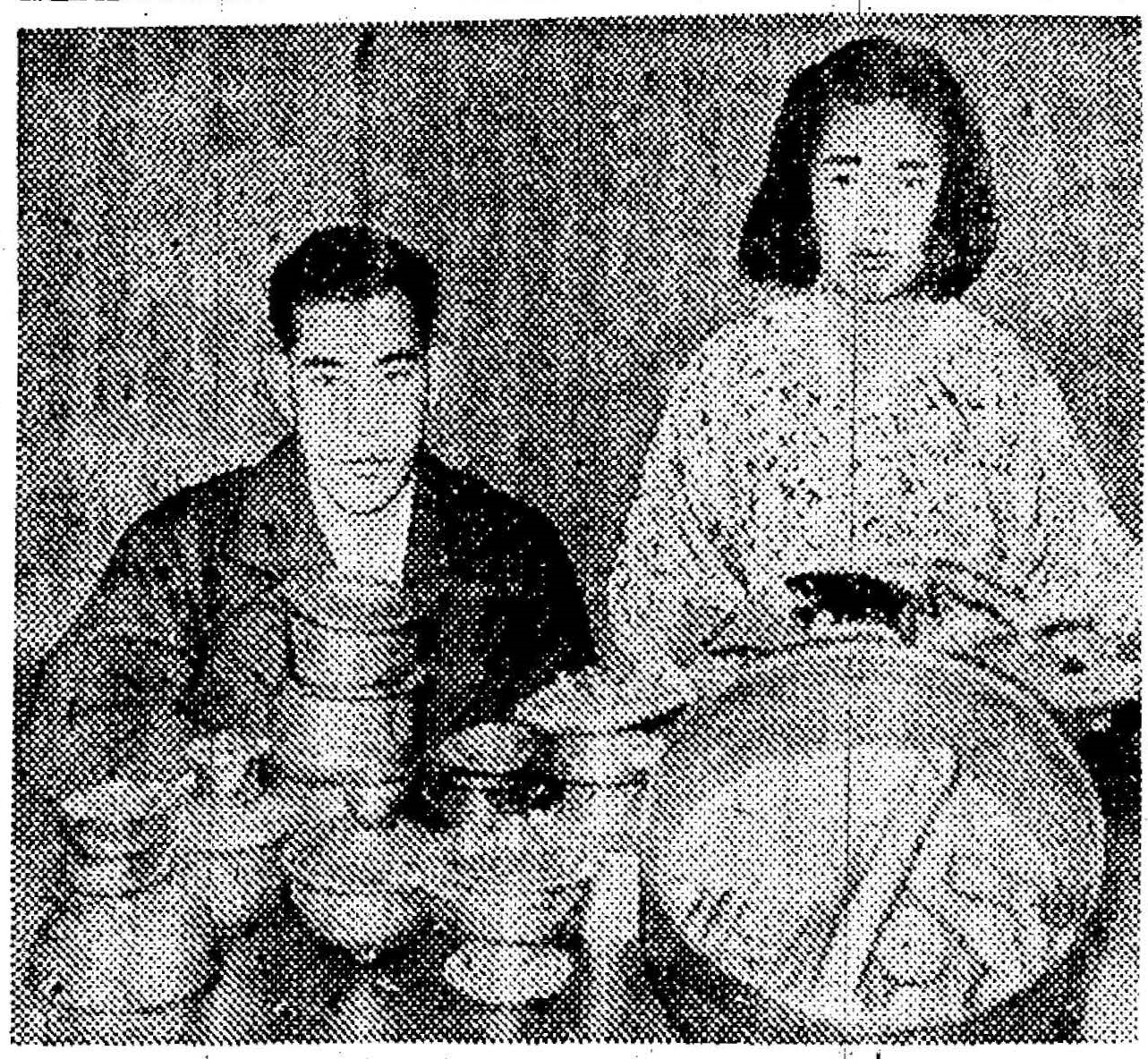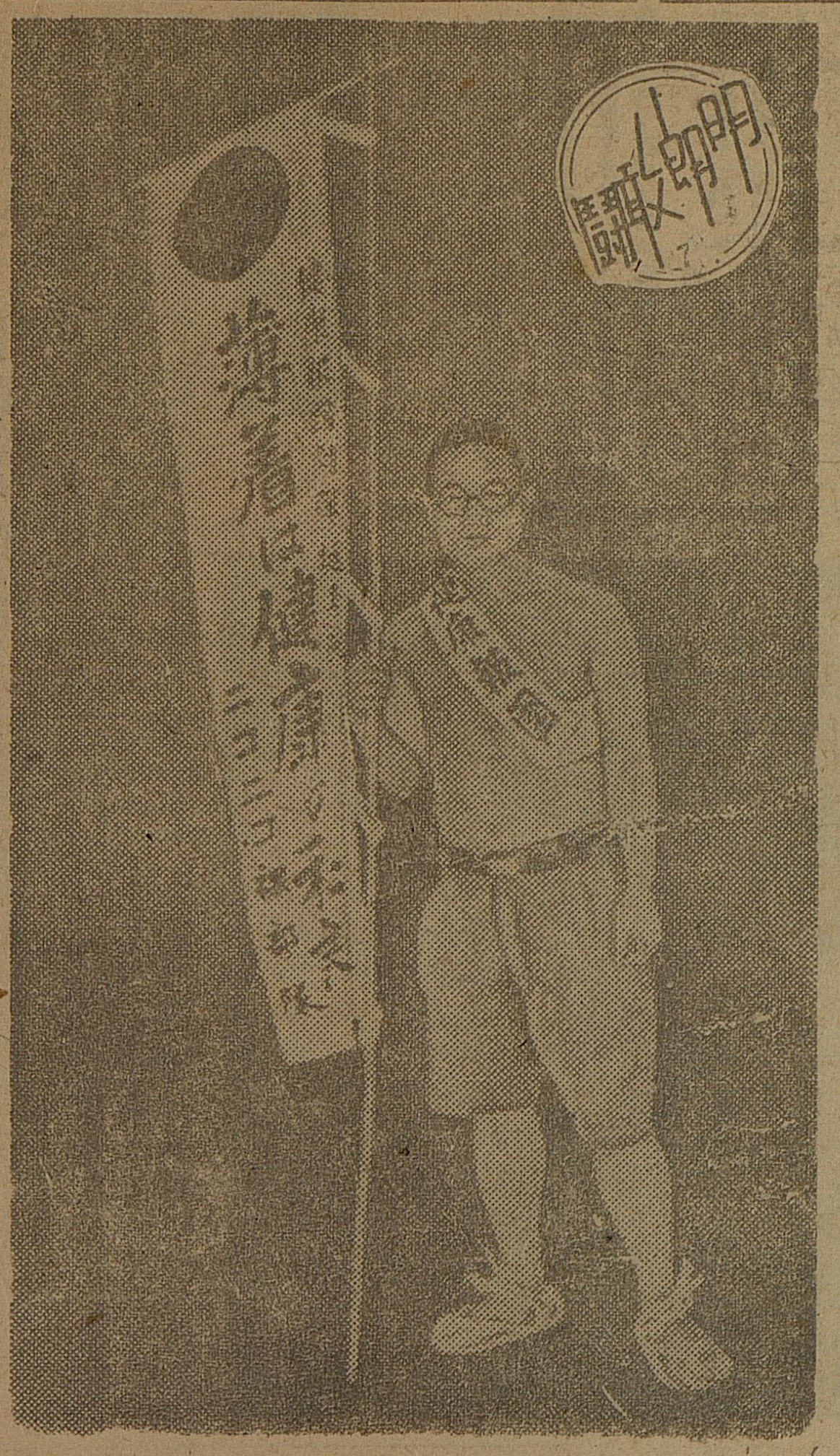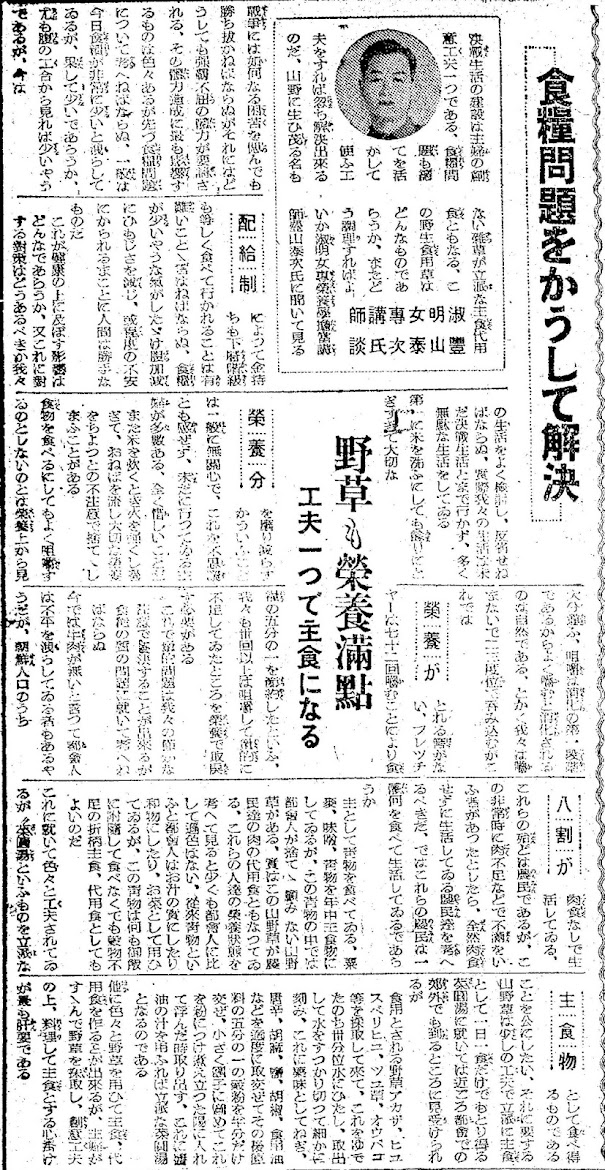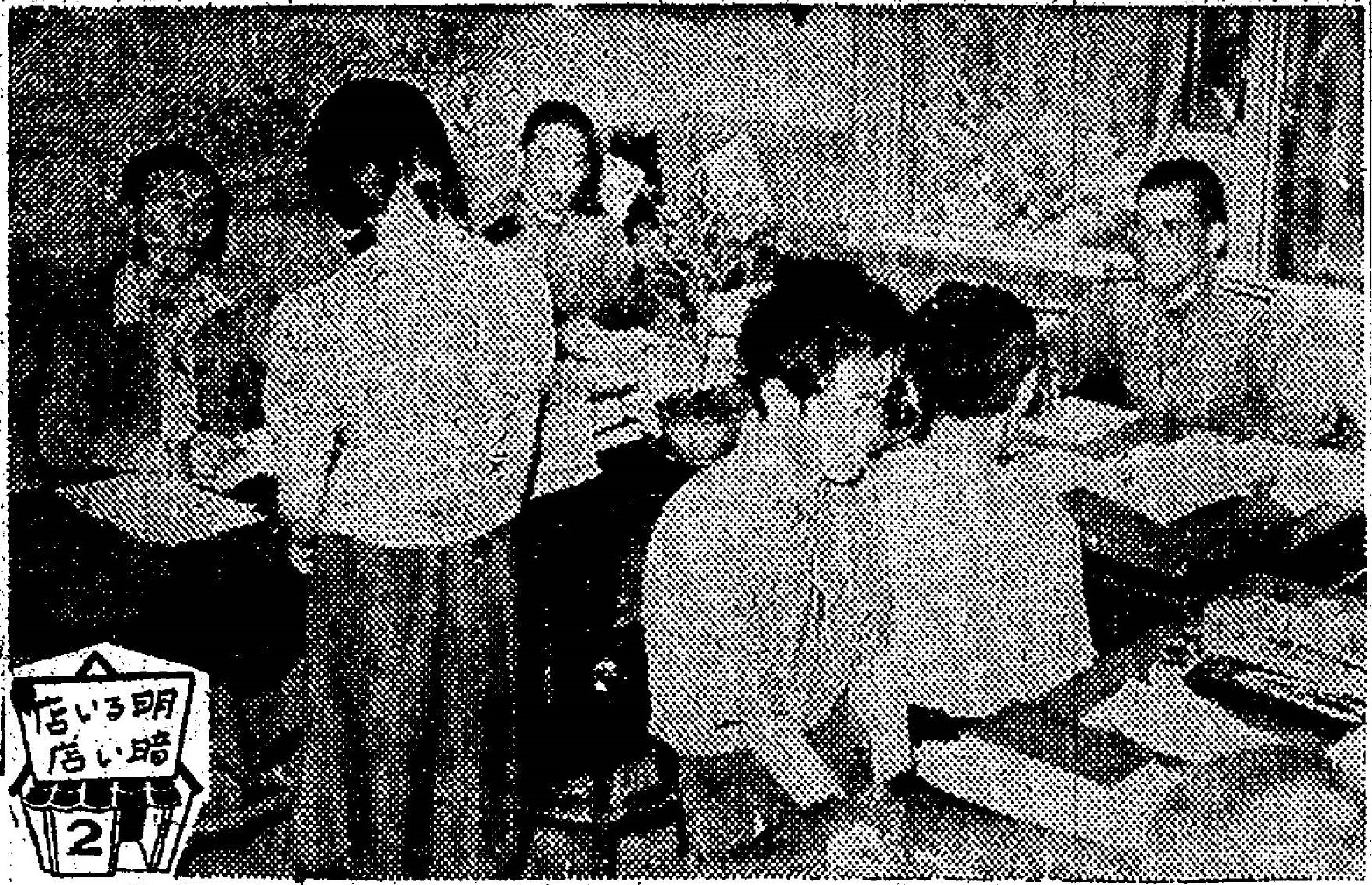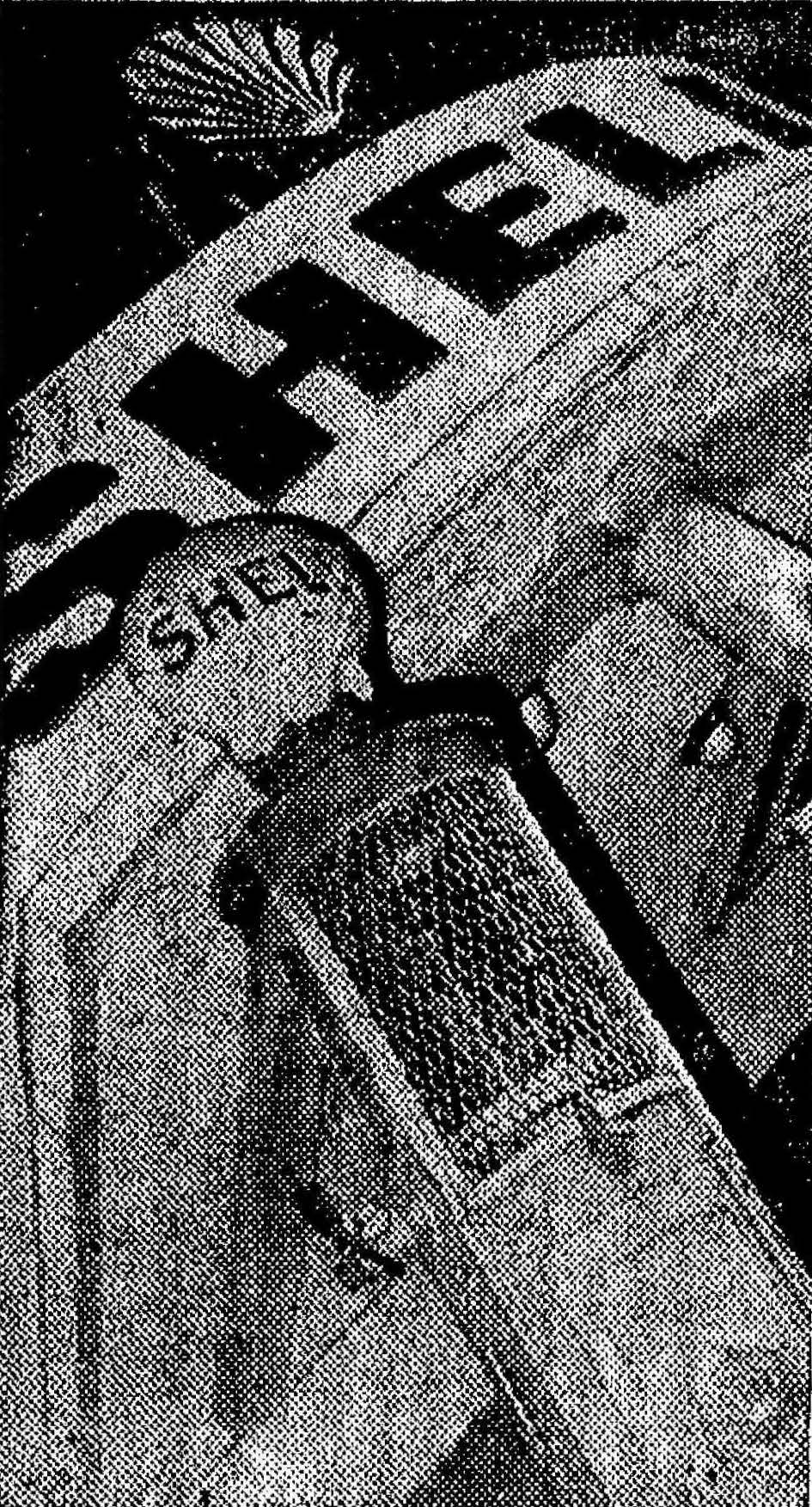
Western firms including Shell, Mobil, HSBC, Otis Elevator, Singer were active in colonial Korea, a US firm had a corn starch factory in Pyongyang, until the regime confiscated their assets with the outbreak of war, accused of having a ‘Jewish spirit’ which ‘exploits the entire wealth of mankind’
2023-01-11
518
1581
This is an article from December 1942, and it particularly stands out for its especially antisemitic, anti-American, and anti-British messaging. It is part of a series of articles written to commemorate the one-year anniversary of the Pacific War against the United States, which began with the bombing of Pearl Harbor on December 7th local time (December 8th Japan time) in 1941. Setting aside the hateful content, this article provides a unique insight into the British and American corporations that were actively operating in Korea before they were confiscated by Imperial Japanese authorities about two months after the outbreak of war.
The article lists 15 British and American corporations actively operating in colonial Korea, including what were apparently joint ventures operating under the names of local companies, like Sakuma Industries, Pyonggang Industries, Unchang Industries, and a U.S. joint venture, Corn Product Refining Company, that apparently ran a corn starch factory in Pyongyang. Shell and Mobil had gas stations throughout Korea. Singer Corporation sold sewing machines to the Korean public under layaway plans. Other surprising appearances include HSBC, Otis Elevators, North British Mercantile Insurance Company, and Commercial Union Insurance Company.
Unlike colonies run by Western countries, Imperial Japan allowed Western companies to come and operate inside Korea from the very beginning, when Korea was annexed in 1910. Western missionaries set up hospitals and schools, and mining operations were started by Western companies. However, leading up to 1941, restrictions against Westerners were gradually escalated. In April 1940, Westerners were no longer allowed to buy land in major cities and within 4 kilometers of railroads. In July 28, 1941, regulations for the control of foreign nations, aimed at U.S. and Philippines residents, were passed, and even stricter regulations were passed after the outbreak of war.
I was able to figure out many of the company names and the above background information thanks to an excellent 2011 Japanese-language academic paper (PDF) entitled “The Management and Disposal of the Westerner’s Property in Colonial Korea during the Second Sino-Japanese War, the Pacific War and the Korean Liberation Period, 1937-1948”, written by Ahn Jong-cheol (안종철, 安鍾哲).
However, further offline research will be needed to clarify some issues about this list. What company was “Compronpial”? My speculation is, maybe they misread the faded text saying “Compton” as “Complon”, and the actual name of the company started with “Compton”. There is no online historical information about many of the listed companies, including “Compton”, Uo-oto pharmaceuticals, and the local companies, so the historical trail will have to be picked up offline in libraries.
(Translation)
Gyeongseong Ilbo (Keijo Nippo) December 5, 1942
Roots stretched throughout all of Korea
The epitomy of loan sharks,
Totally reborn into a new wing of the war effort
Shut out the United States and Britain!
One year since [the start of the Pacific War on December 8th]
Production Edition
Of our country’s total production, the amount of production that the Korean peninsula assumes as a military base of operations is [redacted] billion yen, or about 10% of our country’s total production. The clutches of the enemy’s capital extended even into this great peninsula’s output. Before the war, the amount of the enemy’s capital reached a total of [redacted], turning the Korean peninsula into a bastion of American and British capitalism’s aggression and exploitation of Greater East Asia by casting an insidious web of financial power.
As soon as the Greater East Asia War broke out, at 10:00 a.m. on December 9 of last year, the Ministry of Finance issued regulations (asset freezes) for the control of foreign nationals. The Ministry of Finance issued a notice to the American and British nationals that all general permission orders would be forfeited. Even in Korea, the Enemy Assets Control Law was immediately enforced on December 12 of that year to actively control assets belonging to the enemy and quasi-enemy nationals. On February 7, the Enemy Assets Control Law was implemented for trading companies, especially commercial corporations belonging to the production sector. Here, the Japanese government confiscated enemy assets, which now play a role in the war aims of the new Japan that prospers as it fights. Active efforts have begun to use the confiscated enemy assets to supply the war effort. The following are some of the major confiscated enemy assets:
Firstly, the U.S. and British oil companies including Standard Vacuum Oil Company (U.S.), Rising Sun Petroleum (U.K.), The Texas Company (China) Limited (U.S.), followed by Singer Corporation (U.S.), Compronpial (U.S.), and Nippon National (U.S.). Japanese grain companies and others include Uo-oto Pharmaceutical Company (U.S.), North British Mercantile Insurance Company (U.K.), Tōyō Otis Elevator (U.S.), Shinkō Cotton (U.K.), Hongkong and Shanghai Bank (U.K.), Commercial Union Insurance Company (U.K.), Sakuma Industries (U.S.), Pyonggang Industries (U.K.), and Unchang Industries (U.K.). The capitalization of these 15 companies amounted to over [redacted] million yen.
The three oil companies alone had invested 450,000,000 yen. They built an oil depot in Busan and expanded their sales channels to all corners of the Korean peninsula, making a strong inroad into Korea’s economic world and focusing on invasion and exploitation. They attracted attention by using the symbol of a heavenly horse or a shell-shaped mark on street corners. Gasoline stations and signage were also outlandishly set up in the streets.
Those dens of U.S. and British aggression are still fresh in our memories, but in the first year of the Holy War, the people’s determination to destroy the U.S. and Britain, their sworn enemies, successfully swept away the Americans and the British, and the stronghold of aggression that they had built over the past hundred years was replaced by the blade of justice that was aimed at their throats. The taxis, trucks, and buses that sped through the streets have now been replaced by fuel-efficient vehicles, and the triumphant songs of scientific Japan are now played in high spirits. Out of mischief, gas stations previously painted with bright red and yellow paint were reduced to signboards calling for the defeat of the U.S. and Britain.
Yoshikuni Nakatani was newly appointed to become president of the U.S.-affiliated Japan Grain Company, which boasts a vast site and modern facilities on the banks of the Taedong River in Pyongyang with a capital investment of 780 million yen. He has been making strenuous efforts to increase food production for Japan, which is now fighting a new battle every day. In April 1930, the U.S.-affiliated company began manufacturing starch from Korean corn, with an annual production of [redacted] hundred-thousand tons. In the meantime, he paid 200,000 a year to the U.S. government for the use of a U.S. patent, and also manufactured high-grade oil and chemicals as by-products. The company expanded its sales channels not only within Korea and mainland Japan, but also in the Chinese mainland. They were literally enjoying the beautiful juice of exploitation, and they had cast and unleashed their plutocratic financial web. They have always exploited under the guise of “equal opportunity” and the welfare of mankind. It is the Jewish spirit to spread surplus money all over the world and exploit the entire wealth of mankind in all corners of the world. The Greater East Asia War is also a war to drive this Jewish spirit out of the land and skies over Greater East Asia.
Their ingenious and extremely vicious dollar policies ate up nations and insatiably sucked the blood and fat of the world’s humanity. The death struggles between Germany and the Soviet Union, the defeat of France, and the downfall of the Netherlands and other small countries were all the results of their schemes. We can all be taken in by their ingenious schemes before we even know it. A good example is the monthly installment sales of Singer sewing machines.
When we think about the fact that most of the people to whom they sold these machines were meager monthly wage earners, and that most of them were using their meager paychecks to support their greed, we still become infuriated at the insatiable inhumanity of it all. The monthly installment system is a vicious business scheme designed by the U.S. to squeeze every last penny out of the world’s poor.
One year after the war began, the world’s loan sharks, the U.S. and Britain, have been completely defeated, and even here on the Korean peninsula, the triumphal song of victory over the U.S. and Britain has been loudly proclaimed. All enemy facilities have now become activated as important parts of Japan’s war efforts, rehabilitated as the driving force for the grand creation of Greater East Asia. The peoples of the Philippines, East Indies, Malaysia were previously deprived of their lands and had their nations destroyed, but they are now growing rapidly under the warm military rule of the Imperial Japanese forces.
The world’s loan sharks have been using all kinds of tactics to continue inflicting suffering. They want beds, clothes, hats, and even shoes to be paid for by monthly installments. It is more difficult to provide healthy lives to the people under such a system than it is for a great person to be born from perfectly ordinary parents. Moreover, their usual modus operandi is to hone in on people who are in difficult situations, beat up each and every member of the human race, and then seize their land after first wreaking havoc on the national characters of their nations. [Photo: An abandoned gas station]
Source: https://www.archive.org/details/kjnp-1942-12-05
(Transcription)
京城日報 1942年12月5日
全鮮に張る根城
高利貸根性の標本
戦力一翼へ、全く新生
米英締め出し
あれから一年
生産篇
我国総生産高のうち兵站基地の名において半島に負荷さるるもの〇〇億、即ち約一割に当っている。この偉大なる半島生産高の中にも敵性資本の魔手は伸び、戦前におけるその額実に〇〇に達し、米英資本主義は半島にも不逞な金権の網を張って大東亜の侵略と搾取の根城をなしていたのである。
大東亜戦争勃発するや昨年十二月九日午前十時を期して、わが大蔵省は外国人関係取締規則(資産凍結)を発動。米英人に対し一般許可令はことごとく失却する旨通告を発した。朝鮮でも直ちに敵産管理法を同十二日施行して敵国及び準敵国人に属する財産の積極的取締に当ると同時に二月七日取り敢えず、商事会社、特に生産部面に属する営利法人に対する敵産管理を断行。ここにおいて敵国財産は日本政府に接収され今や、戦いながら肥える新日本の戦争目的に一役買って戦力補給に活発な活動を開始している。その主なものを拾って見ると。
第一に米英系石油会社、スタンダード(米)、ライジングサン(英)、テキサス(米)、シンガーミシン(米)、コンプロンピアル(米)、日本ナショナル(米)。日本穀産会社等を初め魚乙品製薬会社(米)、ノースブリテッシュ・マーキャンタルインシュランスカンパニー(英)、東洋オーチス・エレベータ(米)、振興綿花(英)、香港上海銀行(英)、コンマーシャル・ユニオン・アッシュランスカンパニー(英)、作久間工業(米)、平康工業(英)、雲昌工業(英)の十五社。その資本金は実に〇〇〇〇万円に及んでいる。
石油会社である三社だけでも四百五十万円の資本を投じて分坪、釜山に油槽所を置き、全鮮の隅々までも販路をひろめ、半島経済界に根強く喰い入って侵略と搾取に専念していたのである。街角などで天馬や貝標のマークを付けて我が物顔に人目を引いていた。ガソリン・スタンドや横文字もぎょうぎょうしく店舗を構えていた。
これ等米英侵略の巣窟は今なお我々の記憶に新しいが、聖戦一年宿敵米英撃滅に蹶起した国民の感情は米英色を見事に一掃し、彼等が百年に亘って営々築きあげた侵略の牙城は逆に彼等の咽喉を狙う正義の刃と変ったのである。巷を疾走するタクシーもトラック、バスも此の頃は代燃車に置き替えられ、科学日本の凱歌を高らかに奏でている。そして赤黄のペンキも鮮やかに塗られたガソリンスタンドはいたずらに敗戦米英の表看板にまで落ちぶれ果てたのである。
また七百八十万円の資本金で平壌大同江畔に広大な敷地と近代的設備を誇った米系日本穀産会社も新しく中谷芳邦が社長に就任。日も新たに戦う日本の食糧増産に懸命の努力を注いでいる。昭和五年四月、米系資本によって鮮産玉蜀黍を原料に澱粉製造に乗り出し、年産〇〇万をあげていた。その中、米国の特許使用料として年二十万を米国政府に支払い、高級油、薬品等を副産物として製造。鮮内はもとより内地、支那大陸に販路を拡張。文字通り搾取の美汁に酔いしれていたのであるが、彼等はこの金権網の目張りを門戸開放。機会均等と称し、常に人類の福祉ということをお題目として搾取して来た。あり余った金を世界中にばら撒いて西に東に南に北に人類のあらゆる幸を搾略しようというユダヤ根性であり、大東亜戦争はこのユダヤ根性を大東亜の天地から叩き出すための戦争でもある。
彼等の巧妙悪辣を極めるドル政策は大きくは国を食い潰し、小さくは世界人類の膏血を吸って飽くことを知らなかった。独、ソの死闘、フランスの敗退、和蘭その他小国の亡国その悉くがこの彼等の策謀の所産である。そして又我々が知らず知らずの中に彼等の巧妙なる策謀に乗ぜられていたことを思って見ると、いい例がシンガーミシンの月賦販売である。
売りつける相手はしがない月給取り、その大部分が乏しい俸給袋をはたいて彼等の貪欲に奉仕していたことを考える時、今更の如く飽くなき非道に憤激するのである。月賦制度なるものは米国が世界の細民から金のありったけを搾り上げようと企んだ悪辣極まる商法である。
開戦一年、世界の高利貸米、英は完全に敗北して、ここ半島にも米英色一掃の勝利の凱歌は高らかに揚げられている。すべての敵性施設は今は重要なる日本の戦力として活動し、偉大なる大東亜創造の推進力として更生しているのである。皇軍の温かい軍政下にすくすくと伸びつつある比律賓、東印度、馬来等の民衆は土地を奪われ、国を亡ぼされた。
その上にあの手、この術で悉く苦悩を続けて来たのである。寝台が月賦、洋服が月賦、帽子も月賦なら靴までが月賦である。そんな生活の中から健全なる国民生活を生み出そうということは鳶が鷹を生ませるよりもなお難しい。しかもこの難しい所に彼等が目をつけ、人類の一人一人を叩いておいて、先ずその国の国民性を滅茶苦茶に混乱させた挙句、国土を奪取するのが常套手段なのである。【写真=廃業されたガソリンスタンド】

